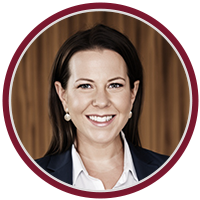An accelerator is a school that helps entrepreneurs get their venture to the next stage. Most importantly, accelerators prepare founders for the Demo day where they can raise their next round of financing. These schools are most useful for founders with little startup experience or for foreign startups looking to enter new markets.
When you have to sift through the many accelerator programs offered, it is easy to get confused. Luckily, in this article and the corresponding video, we put together eight criteria you can consider when deciding which accelerator is the best fit for you.
Criteria #1: The program’s length and location.
When you join an accelerator, you are usually expected to attend the program on site. So, if the accelerator is in California or New York, you would have to move there and stay there until the end of the program. Consequently, depending on the program’s duration, you will have to make significant changes to your life and to incur living expenses.
Criteria #2: The program’s structure.
Not all accelerators are the same. Some have a marketing focus, some are more geared to product development. It is wise to look at the program’s curriculum to choose the program that is the best fit for you.
Criteria #3: The program’s track record and the number of years in existence.
Getting into such famous accelerators as Y Combinator or ERA Accelerator is not possible for everyone. Thus, out of the ones that accept your early stage startup, you should focus on those with the best track record and most years in existence. Once your startup grows a little more, you can always apply again to get into the more popular accelerator programs.
Criteria #4: Level of oversight.
Some accelerators are more hands-off and some are more hands-on. You should choose an accelerator that matches the level of oversight you are most comfortable with.
Criteria #5: Sector focus.
Accelerators may have an industry focus which provides a more tailored experience for the participating startups. For example, they may teach a sector-specific curriculum and give you access to mentors with deep subject matter expertise. If you are entering an industry that requires a lot of technical knowledge which you don’t have, a sector-focused accelerator may be a good choice for you.
Criteria #6: The access to and the quality of mentors.
Mentors are the key value offering of any accelerator program. You should find out what kind of mentors each program provides and how easily they are accessible. Ideally, mentors are available on a weekly basis and cover all areas of expertise that you would need to grow your business.
Criteria #7: Terms – $ Invested vs. % equity.
Unfortunately, accelerator terms are usually non-negotiable. Therefore you should review carefully what you are signing up for to make sure that the percentage of equity you give away is commensurate with the investment they offer.
Criteria #8: The number of companies funded after the Demo Day.
This is one of the most important criterias because getting funding is the main goal of the program. Usually, very successful accelerators publish this number online. Therefore, if you cannot find this information easily, it is a red flag, and you may want to pursue another option.
When you have to sift through the many accelerator programs offered, it is easy to get confused. Luckily, in this article and the corresponding video, we put together eight criteria you can consider when deciding which accelerator is the best fit for you.
-
About Author
Victoria Yampolsky, CFA, is the President and Founder of The Startup Station, a comprehensive resource for modeling and valuing early-stage startups. She evaluates the financial feasibility of business models and specializes in the financial modeling and valuation of pre-revenue companies. She also created a finance curriculum for early-stage founders and launched The Startup Station’s educational program in 2015. Since then, more than 1,000 founders have attended her online and in-person finance classes and learned the basics of financial modeling, valuation, and startup financing.
Previously, Victoria worked for the Deutsche Bank Research Department and performed IT consulting for CapGemini’s Financial Services Division. Victoria holds a Bachelor’s Degree, Cum Laude, in Computer Science, with a minor in Mathematics, from Cornell University and an MBA, with honors, from Columbia Business School. Victoria is also on the Advisory Board of the Computing and Information Science (CIS) Department of Cornell University.
Still have questions?
We are happy to talk to you. Book a FREE 30-min consultation now by pressing the button below and, as a bonus, we will send you a COMPLIMENTARY financial health checklist.








 “Coming in with no formal background in financial modeling or accounting and as a first-time founder, I needed exactly this program. Victoria’s financial training covered startup accounting, investor-ready financials, key metrics, and break-even across common business models, presenting and analyzing financials, and term sheets and valuation, which finally made the numbers click. I built a working bottoms-up forecast, clarified our unit economics, and can now speak to the model with more confidence. Jeanne’s investing expertise clarified what investors actually care about, from pitch deck structure to effective cold outreach. Demo Day prep and the Demo Day pressure-tested the narrative and produced actionable feedback. The broader network, from go-to-market to legal, was generous and will remain a source of support. I’m leaving with a credible model, a sharper deck, a focused target list, and a clear plan I’m already executing!”
“Coming in with no formal background in financial modeling or accounting and as a first-time founder, I needed exactly this program. Victoria’s financial training covered startup accounting, investor-ready financials, key metrics, and break-even across common business models, presenting and analyzing financials, and term sheets and valuation, which finally made the numbers click. I built a working bottoms-up forecast, clarified our unit economics, and can now speak to the model with more confidence. Jeanne’s investing expertise clarified what investors actually care about, from pitch deck structure to effective cold outreach. Demo Day prep and the Demo Day pressure-tested the narrative and produced actionable feedback. The broader network, from go-to-market to legal, was generous and will remain a source of support. I’m leaving with a credible model, a sharper deck, a focused target list, and a clear plan I’m already executing!” “
“ “
“ “
“

 “If you’re raising capital and want to shine when pitching to investors, I highly recommend you choose Victoria Yampolsky and the Startup Station as your resource for high performance results. Victoria is extremely well versed in all aspects of raising capital and the startup landscape. She provides clients with outstanding tools, applicable advice and thoughtful insights to support their fundraising efforts.
“If you’re raising capital and want to shine when pitching to investors, I highly recommend you choose Victoria Yampolsky and the Startup Station as your resource for high performance results. Victoria is extremely well versed in all aspects of raising capital and the startup landscape. She provides clients with outstanding tools, applicable advice and thoughtful insights to support their fundraising efforts. “Victoria is a rare find in the startup world. She’s brilliant with startup financial strategies and has this no-nonsense work ethic that proves to deliver results. Victoria worked with a participant of 2020 Startups, a startup founder, and within a couple of months the founder raised capital. Victoria has done several workshops and speaking engagements at 2020 Startups and is always insightful and held in the highest regard by the audience.”
“Victoria is a rare find in the startup world. She’s brilliant with startup financial strategies and has this no-nonsense work ethic that proves to deliver results. Victoria worked with a participant of 2020 Startups, a startup founder, and within a couple of months the founder raised capital. Victoria has done several workshops and speaking engagements at 2020 Startups and is always insightful and held in the highest regard by the audience.” “These workshops are extremely useful for all of us. Victoria is the kind of presenter/professional who inspires confidence. I’d recommend her to any startup trying to figure out how it needs to be organized, capitalized, and operated to have a good business model going forward. She focuses on fundamentals, which, too often, are sorely lacking in our ecosystem, and she knows her stuff backwards and forwards”
“These workshops are extremely useful for all of us. Victoria is the kind of presenter/professional who inspires confidence. I’d recommend her to any startup trying to figure out how it needs to be organized, capitalized, and operated to have a good business model going forward. She focuses on fundamentals, which, too often, are sorely lacking in our ecosystem, and she knows her stuff backwards and forwards” “Victoria Yampolsky is THE essential tool for any startup looking to present a viable financial model! If you are a founder who, like me, lacks the business/finance background – YOU NEED HER. If you are looking to show your investors a serious plan for growth and capitalization – YOU NEED HER. Victoria’s thoroughness and dedication will ensure no stone goes unturned in the FOUNDATION of your BUSINESS. And to top it all, she explains everything with such calm & clarity, it is an absolute delight to be working with her.”
“Victoria Yampolsky is THE essential tool for any startup looking to present a viable financial model! If you are a founder who, like me, lacks the business/finance background – YOU NEED HER. If you are looking to show your investors a serious plan for growth and capitalization – YOU NEED HER. Victoria’s thoroughness and dedication will ensure no stone goes unturned in the FOUNDATION of your BUSINESS. And to top it all, she explains everything with such calm & clarity, it is an absolute delight to be working with her.” Liz Wald has 25+ years’ experience building company operations and mobilizing global teams in emerging, disruptive industries.
Liz Wald has 25+ years’ experience building company operations and mobilizing global teams in emerging, disruptive industries.
 Blair Severn is the Chairman and Co-founder of enabling ideas®, a Venture
Blair Severn is the Chairman and Co-founder of enabling ideas®, a Venture Victoria Yampolsky is a serial entrepreneur, strategic CFO advisor for numerous early-stage start-ups and expert in financial modeling and valuation. She’s a passionate advocate for female founders and fair access to capital for all.
Victoria Yampolsky is a serial entrepreneur, strategic CFO advisor for numerous early-stage start-ups and expert in financial modeling and valuation. She’s a passionate advocate for female founders and fair access to capital for all.
 Irina Sychov is an expert in voice, pitching, and fundraising and the Founder of ANIMA Women, a community supporting women in business. A five-time startup founder, she has extensive experience with family offices in London and Miami. Irina gained recognition for her dynamic presence on the British show X Factor, impressing judges like Simon Cowell, which sharpened her skills in audience engagement and self-marketing—essential tools in the business world.
Irina Sychov is an expert in voice, pitching, and fundraising and the Founder of ANIMA Women, a community supporting women in business. A five-time startup founder, she has extensive experience with family offices in London and Miami. Irina gained recognition for her dynamic presence on the British show X Factor, impressing judges like Simon Cowell, which sharpened her skills in audience engagement and self-marketing—essential tools in the business world.









 Marcia Dawood is an early-stage investor who serves on the Securities and Exchange Commission’s Small Business Capital Formation Advisory Committee. She is a venture partner with Mindshift Capital, a member of Golden Seeds, and the chair emeritus of the Angel Capital Association (ACA), a global professional society for angel investors.
Marcia Dawood is an early-stage investor who serves on the Securities and Exchange Commission’s Small Business Capital Formation Advisory Committee. She is a venture partner with Mindshift Capital, a member of Golden Seeds, and the chair emeritus of the Angel Capital Association (ACA), a global professional society for angel investors. Sanford is the Chief Strategy Officer of PowerUp Globally, a strategic and financial planning initiative aimed at revenue-generating seed-level female-led ventures.
Sanford is the Chief Strategy Officer of PowerUp Globally, a strategic and financial planning initiative aimed at revenue-generating seed-level female-led ventures. Irina Sychov – Founder of Women’s Business Community
Irina Sychov – Founder of Women’s Business Community  Thierry Vodounou, PMP, is Managing Director & Founder,
Thierry Vodounou, PMP, is Managing Director & Founder,  Victoria Yampolsky is a serial entrepreneur, strategic CFO advisor for numerous early-stage start-ups and expert in financial modeling and valuation. She’s a passionate advocate for female founders and fair access to capital for all.
Victoria Yampolsky is a serial entrepreneur, strategic CFO advisor for numerous early-stage start-ups and expert in financial modeling and valuation. She’s a passionate advocate for female founders and fair access to capital for all. “What I appreciated most about this program was the opportunity to stop during the work day and have an opportunity to reflect. In addition to having access to pre- and post-session materials that were profoundly useful (which I will undoubtedly go back to), being asked to stop, breathe, and process was a gift that carried throughout the day, week, and program. I recommend this program to any female founder or business owner in the midst of building her business.”
“What I appreciated most about this program was the opportunity to stop during the work day and have an opportunity to reflect. In addition to having access to pre- and post-session materials that were profoundly useful (which I will undoubtedly go back to), being asked to stop, breathe, and process was a gift that carried throughout the day, week, and program. I recommend this program to any female founder or business owner in the midst of building her business.” “Atending the Power Up Coaching pilot has been an absolute game-changer for me. Victoria and Hamp’s expertise, passion, unwavering support and genuine commitment to empowering women in the entrepreneurial space were evident in every session. Also, what truly made this journey unforgettable were the incredible women I met along the way. Sharing stories, challenges, and dreams with fellow entrepreneurs created a bond that transcended mere networking—it felt like finding a tribe where I truly belonged. It has equipped me with invaluable skills, insights, and a network of like-minded individuals who continue to inspire and support me on my entrepreneurial journey. The lessons learned and the connections made have become pillars of strength in my entrepreneurial journey, guiding me through the highs and lows with gratitude, grace and resilience. I know that the PowerUp Coaching program will always be more than just a program to me—it’s a part of my story, a chapter filled with growth, friendship, and empowerment. I’m immensely grateful to Victoria and Hamp and The Startup Station for helping me realize my potential as a woman entrepreneur.
“Atending the Power Up Coaching pilot has been an absolute game-changer for me. Victoria and Hamp’s expertise, passion, unwavering support and genuine commitment to empowering women in the entrepreneurial space were evident in every session. Also, what truly made this journey unforgettable were the incredible women I met along the way. Sharing stories, challenges, and dreams with fellow entrepreneurs created a bond that transcended mere networking—it felt like finding a tribe where I truly belonged. It has equipped me with invaluable skills, insights, and a network of like-minded individuals who continue to inspire and support me on my entrepreneurial journey. The lessons learned and the connections made have become pillars of strength in my entrepreneurial journey, guiding me through the highs and lows with gratitude, grace and resilience. I know that the PowerUp Coaching program will always be more than just a program to me—it’s a part of my story, a chapter filled with growth, friendship, and empowerment. I’m immensely grateful to Victoria and Hamp and The Startup Station for helping me realize my potential as a woman entrepreneur. “As a busy entrepreneur, I was drawn to PowerUp Globally Coaching Program’s focus on cultivating resilience, emotional intelligence, and a growth mindset for managing the inevitable stresses of building a business. From the first session, the small group size allowed a safe, supportive environment to openly discuss challenges.
“As a busy entrepreneur, I was drawn to PowerUp Globally Coaching Program’s focus on cultivating resilience, emotional intelligence, and a growth mindset for managing the inevitable stresses of building a business. From the first session, the small group size allowed a safe, supportive environment to openly discuss challenges.  “What a valuable experience!
“What a valuable experience! “Victoria really distilled down the financial model to the inputs that need to be discovered in order to determine business viability. Her attention to detail and experience show in taking those inputs and filling out the rest of the model. These are the real numbers that you need for investors.”
“Victoria really distilled down the financial model to the inputs that need to be discovered in order to determine business viability. Her attention to detail and experience show in taking those inputs and filling out the rest of the model. These are the real numbers that you need for investors.” “Victoria provided me with great knowledge for the financial projection and reviewed my pitch deck where she provided me with great pointers. She definitely is somebody I count as my inner circle of advisors and recommend her as the go to person for any start up.”
“Victoria provided me with great knowledge for the financial projection and reviewed my pitch deck where she provided me with great pointers. She definitely is somebody I count as my inner circle of advisors and recommend her as the go to person for any start up.” “If you’re raising capital and want to shine when pitching to investors, I highly recommend you choose Victoria Yampolsky and the Startup Station as your resource for high performance results. Victoria is extremely well versed in all aspects of raising capital and the startup landscape. She provides clients with outstanding tools, applicable advice and thoughtful insights to support their fundraising efforts.
“If you’re raising capital and want to shine when pitching to investors, I highly recommend you choose Victoria Yampolsky and the Startup Station as your resource for high performance results. Victoria is extremely well versed in all aspects of raising capital and the startup landscape. She provides clients with outstanding tools, applicable advice and thoughtful insights to support their fundraising efforts. “We are a couple of engineers going through lot’s of trials and errors trying to launch our startup so meeting with Victoria was priceless in terms of getting a fresh unbiased perspective on our business model and getting advice on how to move forward.
“We are a couple of engineers going through lot’s of trials and errors trying to launch our startup so meeting with Victoria was priceless in terms of getting a fresh unbiased perspective on our business model and getting advice on how to move forward. “I have the greatest appreciation for Victoria’s contribution in analyzing financial trends and developing the monetization strategies for my business. She is not only an experienced financial analyst, but she is also very creative and gave my business many important suggestions. I felt comfortable and willing to reveal information easily, which helped make the valuation process easier. Victoria can see the big picture almost immediately, and at the same time she is a stickler for details. These attributes make her a perfect financial advisor and mentor for entrepreneurs. Further, Victoria, once given a task, is completely dedicated to it. She has a keen ability to process and synthesize information and make the right decisions, and she comes with the highest recommendation.”
“I have the greatest appreciation for Victoria’s contribution in analyzing financial trends and developing the monetization strategies for my business. She is not only an experienced financial analyst, but she is also very creative and gave my business many important suggestions. I felt comfortable and willing to reveal information easily, which helped make the valuation process easier. Victoria can see the big picture almost immediately, and at the same time she is a stickler for details. These attributes make her a perfect financial advisor and mentor for entrepreneurs. Further, Victoria, once given a task, is completely dedicated to it. She has a keen ability to process and synthesize information and make the right decisions, and she comes with the highest recommendation.” “Victoria is an amazing resource that every start-up should have. She is whip smart and diligent. We worked with her on the valuation of our company and she’s been an invaluable resource in refining our assumptions, revenue and expenditure models. If you think you understand the fundamentals of your own business model, talk to Victoria and get ready to learn so much more!”
“Victoria is an amazing resource that every start-up should have. She is whip smart and diligent. We worked with her on the valuation of our company and she’s been an invaluable resource in refining our assumptions, revenue and expenditure models. If you think you understand the fundamentals of your own business model, talk to Victoria and get ready to learn so much more!” “I had the pleasure of working with Victoria for building a working financial model for my business. Her expertise and acumen are not only impressive, but her personable nature made her a joy to work with as well. She was able to offer valuable insights and direction as we strategically built out a financial model, utilizing reliable data assumptions that translate to a usable document for my business. The result and end-product proved the value of both the time and monetary investment. I couldn’t recommend her enough as a resource for any entrepreneur looking to build out a financial model, financial roadmap and/or valuation of their enterprise.”
“I had the pleasure of working with Victoria for building a working financial model for my business. Her expertise and acumen are not only impressive, but her personable nature made her a joy to work with as well. She was able to offer valuable insights and direction as we strategically built out a financial model, utilizing reliable data assumptions that translate to a usable document for my business. The result and end-product proved the value of both the time and monetary investment. I couldn’t recommend her enough as a resource for any entrepreneur looking to build out a financial model, financial roadmap and/or valuation of their enterprise.” “Victoria Yampolsky came highly recommended by a colleague of mine and I’ve been fortunate to work with her! She completed the valuation and the financial model for our startup, EnergyPoints. Her unique framework for modeling early-stage ventures allowed us to refine our business plan and use strategy and industry standards to credibly formulate assumptions. Victoria is a Columbia Business School grad and CFA, and her company, The Startup Station, has done 100s of valuations and has an impressive track record. She presented her valuation to two national banks with our accountant, and in both scenarios, she was praised by the level of detail that went into her extensive valuation. I can’t recommend her highly enough!”
“Victoria Yampolsky came highly recommended by a colleague of mine and I’ve been fortunate to work with her! She completed the valuation and the financial model for our startup, EnergyPoints. Her unique framework for modeling early-stage ventures allowed us to refine our business plan and use strategy and industry standards to credibly formulate assumptions. Victoria is a Columbia Business School grad and CFA, and her company, The Startup Station, has done 100s of valuations and has an impressive track record. She presented her valuation to two national banks with our accountant, and in both scenarios, she was praised by the level of detail that went into her extensive valuation. I can’t recommend her highly enough!” “Victoria was a key advisor for Predictive People – as an early stage startup we had tons of questions and we needed professional guidance to sort them out. I am really glad we had her by our side to solve them all, ending with a solid business plan and financial projections. I can’t recommend her more, she’s professional, fast, empathetic, and incredibly smart, a true partner for any startup.”
“Victoria was a key advisor for Predictive People – as an early stage startup we had tons of questions and we needed professional guidance to sort them out. I am really glad we had her by our side to solve them all, ending with a solid business plan and financial projections. I can’t recommend her more, she’s professional, fast, empathetic, and incredibly smart, a true partner for any startup.” “Victoria is trustworthy, knowledgeable and customer-focused startup strategic CFO. I’ve been impressed since day 1 with the responsiveness, thoroughness and overall professionalism of Victoria. According to the traditional scenario of almost all early stage startups, the founders are involved in all processes of the company formation. So I am no exception without having a financial education, without professional Excel skills – I nevertheless decided to build a financial model on our own. Honestly, it seemed impossible. But in the end, we did it in a total of 3 weeks. I want to express my deepest gratitude for professionalism and incredible talent to motivate all of our team members. Victoria has a unique ability to get into the essence of the business very quickly, to think very flexibly and innovatively – which is very important for our startup.
“Victoria is trustworthy, knowledgeable and customer-focused startup strategic CFO. I’ve been impressed since day 1 with the responsiveness, thoroughness and overall professionalism of Victoria. According to the traditional scenario of almost all early stage startups, the founders are involved in all processes of the company formation. So I am no exception without having a financial education, without professional Excel skills – I nevertheless decided to build a financial model on our own. Honestly, it seemed impossible. But in the end, we did it in a total of 3 weeks. I want to express my deepest gratitude for professionalism and incredible talent to motivate all of our team members. Victoria has a unique ability to get into the essence of the business very quickly, to think very flexibly and innovatively – which is very important for our startup. “I was a student and client of Victoria through The Startup Station and cannot highlight enough how helpful the process was for our company in reaching our first funding milestone and personally for me. Victoria is a fantastic teacher and recommend her financial modelling courses to anyone. We also worked one to one to refine our company model/financial roadmap and Im proud of my newly developed, ninja-level Excel skills. Paraphrasing from someone famous “Clarity trumps confidence any day of the week” and it’s what I feel from working with Victoria.”
“I was a student and client of Victoria through The Startup Station and cannot highlight enough how helpful the process was for our company in reaching our first funding milestone and personally for me. Victoria is a fantastic teacher and recommend her financial modelling courses to anyone. We also worked one to one to refine our company model/financial roadmap and Im proud of my newly developed, ninja-level Excel skills. Paraphrasing from someone famous “Clarity trumps confidence any day of the week” and it’s what I feel from working with Victoria.” “Building a financial model with Victoria and The Start Up Station for a mutual client was an illuminating experience!
“Building a financial model with Victoria and The Start Up Station for a mutual client was an illuminating experience! “Victoria is a rare find in the startup world. She’s brilliant with startup financial strategies and has this no-nonsense work ethic that proves to deliver results. Victoria worked with a participant of 2020 Startups, a startup founder, and within a couple of months the founder raised capital. Victoria has done several workshops and speaking engagements at 2020 Startups and is always insightful and held in the highest regard by the audience.”
“Victoria is a rare find in the startup world. She’s brilliant with startup financial strategies and has this no-nonsense work ethic that proves to deliver results. Victoria worked with a participant of 2020 Startups, a startup founder, and within a couple of months the founder raised capital. Victoria has done several workshops and speaking engagements at 2020 Startups and is always insightful and held in the highest regard by the audience.” “Victoria and The Startup Station Team were absolute game-changers for Ovaterra. Victoria served as my right-hand CFO through fundraising, M&A, liquidity crises and more — always guiding the ship with calm, detail-oriented and strategic advice. I would recommend her and her team to any Founder or executive who needs a strategic, fractional CFO to guide your business to the next level.”
“Victoria and The Startup Station Team were absolute game-changers for Ovaterra. Victoria served as my right-hand CFO through fundraising, M&A, liquidity crises and more — always guiding the ship with calm, detail-oriented and strategic advice. I would recommend her and her team to any Founder or executive who needs a strategic, fractional CFO to guide your business to the next level.” “Victoria, we raised $1.4M! It’s finally
“Victoria, we raised $1.4M! It’s finally  “Victoria is one of the smartest, and most talented financial analysts out there. She has created the financial models for 2 of my companies, to which we have raised over $20M using her financials and valuation reports. She is very professional and always makes you prove the assumptions:) She will always be a vital part to my businesses.”
“Victoria is one of the smartest, and most talented financial analysts out there. She has created the financial models for 2 of my companies, to which we have raised over $20M using her financials and valuation reports. She is very professional and always makes you prove the assumptions:) She will always be a vital part to my businesses.” “In business, and especially with startups, getting to a place of clarity around the business and financial models can be challenging even for the most experienced professional. Victoria brings the right mix of business and financial know-how and quickly understands the moving pieces. As such, she’s able to provide an excellent product, a deeper sense of understanding about the project based on its’ needs, and a sense of calm and assurance that the challenges faced will be dealt with in a way that drives growth.”
“In business, and especially with startups, getting to a place of clarity around the business and financial models can be challenging even for the most experienced professional. Victoria brings the right mix of business and financial know-how and quickly understands the moving pieces. As such, she’s able to provide an excellent product, a deeper sense of understanding about the project based on its’ needs, and a sense of calm and assurance that the challenges faced will be dealt with in a way that drives growth.” “I had the pleasure of working closely with Victoria as fractional CFO of our startup. Her expertise in business and financial modeling is truly exceptional. Victoria played a pivotal role in helping our company think through every aspect of our business, and her ability to create a comprehensive model was nothing short of impressive. She not only provided a clear plan for our future but also identified areas where we could improve and grow.
“I had the pleasure of working closely with Victoria as fractional CFO of our startup. Her expertise in business and financial modeling is truly exceptional. Victoria played a pivotal role in helping our company think through every aspect of our business, and her ability to create a comprehensive model was nothing short of impressive. She not only provided a clear plan for our future but also identified areas where we could improve and grow. “Victoria Yampolsky is THE essential tool for any startup looking to present a viable financial model! If you are a founder who, like me, lacks the business/finance background – YOU NEED HER. If you are looking to show your investors a serious plan for growth and capitalization – YOU NEED HER. Victoria’s thoroughness and dedication will ensure no stone goes unturned in the FOUNDATION of your BUSINESS. And to top it all, she explains everything with such calm & clarity, it is an absolute delight to be working with her.”
“Victoria Yampolsky is THE essential tool for any startup looking to present a viable financial model! If you are a founder who, like me, lacks the business/finance background – YOU NEED HER. If you are looking to show your investors a serious plan for growth and capitalization – YOU NEED HER. Victoria’s thoroughness and dedication will ensure no stone goes unturned in the FOUNDATION of your BUSINESS. And to top it all, she explains everything with such calm & clarity, it is an absolute delight to be working with her.”